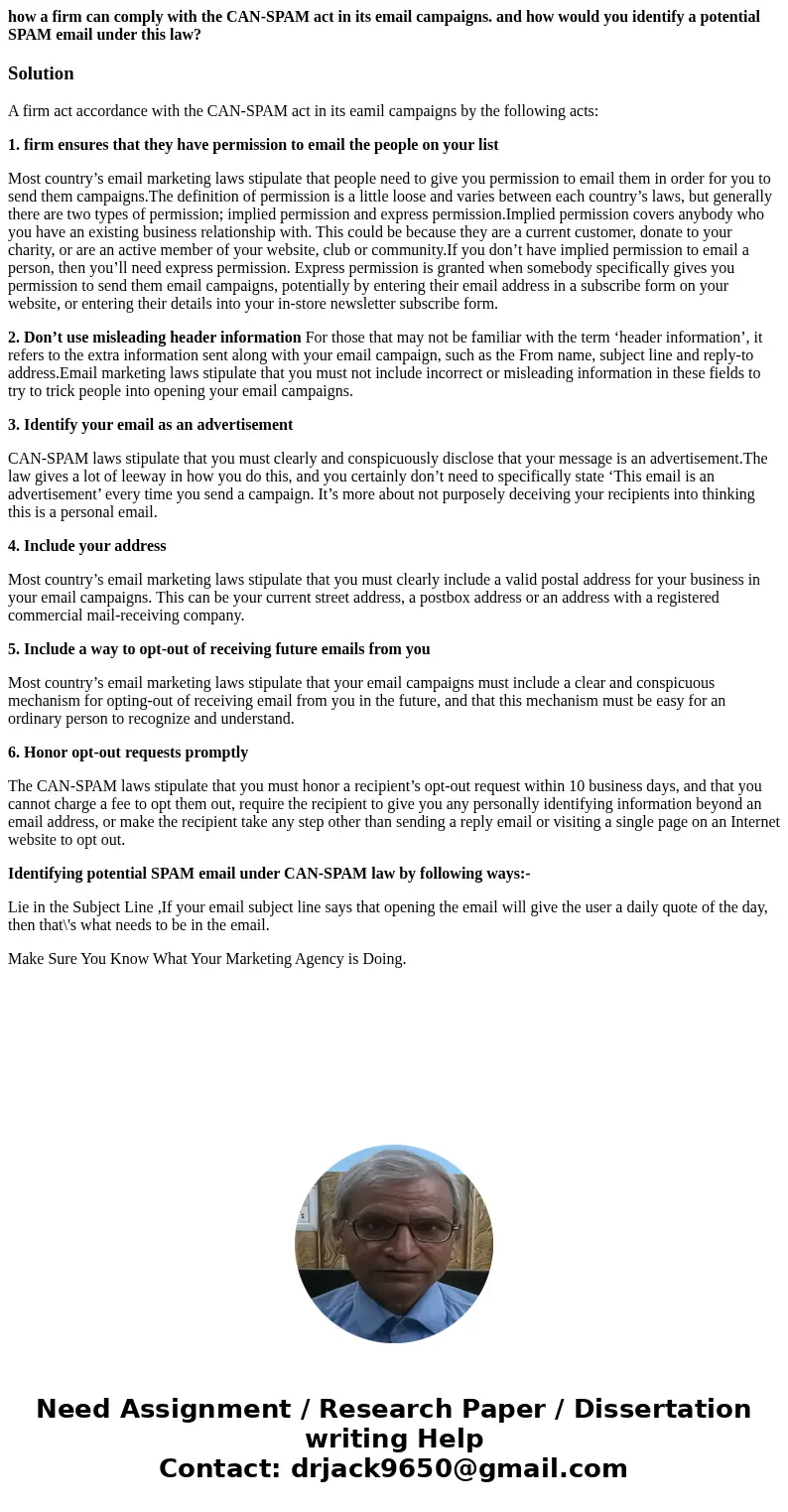how a firm can comply with the CANSPAM act in its email camp
how a firm can comply with the CAN-SPAM act in its email campaigns. and how would you identify a potential SPAM email under this law?
Solution
A firm act accordance with the CAN-SPAM act in its eamil campaigns by the following acts:
1. firm ensures that they have permission to email the people on your list
Most country’s email marketing laws stipulate that people need to give you permission to email them in order for you to send them campaigns.The definition of permission is a little loose and varies between each country’s laws, but generally there are two types of permission; implied permission and express permission.Implied permission covers anybody who you have an existing business relationship with. This could be because they are a current customer, donate to your charity, or are an active member of your website, club or community.If you don’t have implied permission to email a person, then you’ll need express permission. Express permission is granted when somebody specifically gives you permission to send them email campaigns, potentially by entering their email address in a subscribe form on your website, or entering their details into your in-store newsletter subscribe form.
2. Don’t use misleading header information For those that may not be familiar with the term ‘header information’, it refers to the extra information sent along with your email campaign, such as the From name, subject line and reply-to address.Email marketing laws stipulate that you must not include incorrect or misleading information in these fields to try to trick people into opening your email campaigns.
3. Identify your email as an advertisement
CAN-SPAM laws stipulate that you must clearly and conspicuously disclose that your message is an advertisement.The law gives a lot of leeway in how you do this, and you certainly don’t need to specifically state ‘This email is an advertisement’ every time you send a campaign. It’s more about not purposely deceiving your recipients into thinking this is a personal email.
4. Include your address
Most country’s email marketing laws stipulate that you must clearly include a valid postal address for your business in your email campaigns. This can be your current street address, a postbox address or an address with a registered commercial mail-receiving company.
5. Include a way to opt-out of receiving future emails from you
Most country’s email marketing laws stipulate that your email campaigns must include a clear and conspicuous mechanism for opting-out of receiving email from you in the future, and that this mechanism must be easy for an ordinary person to recognize and understand.
6. Honor opt-out requests promptly
The CAN-SPAM laws stipulate that you must honor a recipient’s opt-out request within 10 business days, and that you cannot charge a fee to opt them out, require the recipient to give you any personally identifying information beyond an email address, or make the recipient take any step other than sending a reply email or visiting a single page on an Internet website to opt out.
Identifying potential SPAM email under CAN-SPAM law by following ways:-
Lie in the Subject Line ,If your email subject line says that opening the email will give the user a daily quote of the day, then that\'s what needs to be in the email.
Make Sure You Know What Your Marketing Agency is Doing.

 Homework Sourse
Homework Sourse